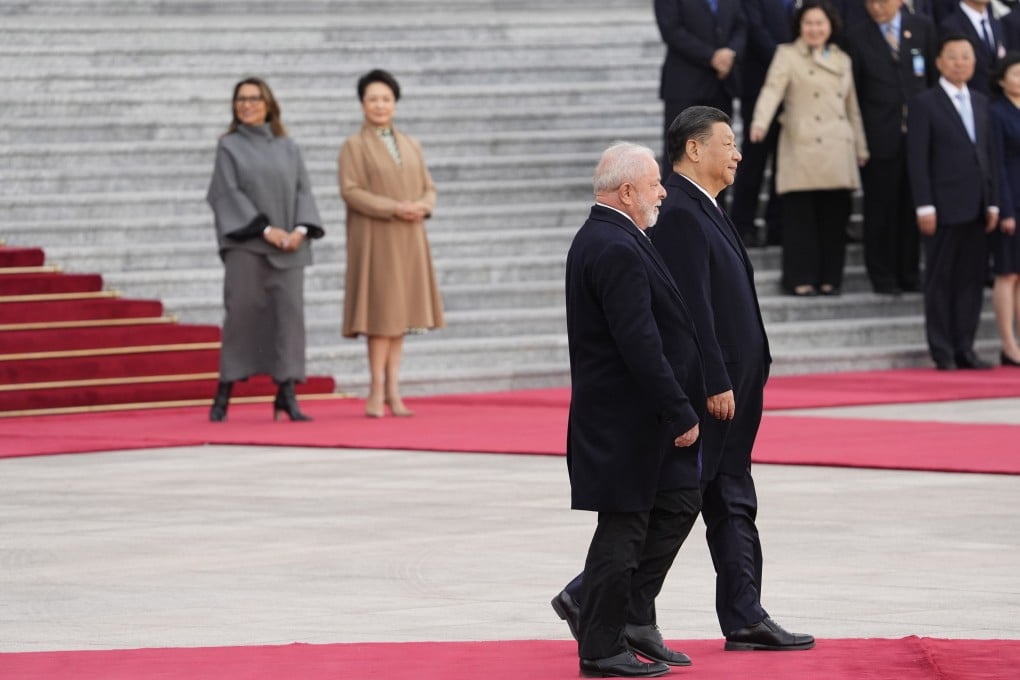Brazilian president wraps up China visit by telling US to ‘stop encouraging’ war in Ukraine
- Luiz Inacio Lula da Silva issued the challenge a day after a meeting with Xi Jinping, where they urged more countries to play a constructive role
- While Lula also said the US and EU need to start talking about peace, he told China’s state broadcaster that he still wanted better relations with Washington

“The United States needs to stop encouraging war and start talking about peace. The European Union needs to start talking about peace,” Lula told reporters in Beijing.
In that way, the international community will be able to “convince” Russian President Vladimir Putin and Ukrainian leader Volodymyr Zelensky that “peace is in the interest of the whole world”, he said.
A joint statement by China and Brazil on Friday called on more countries to play a constructive role in promoting a political resolution to the Ukraine crisis, and said both countries will maintain communication on this issue.
Lula’s four-day visit also included a meeting with his Chinese counterpart Xi Jinping on Friday and saw the signing of 15 deals covering areas such as satellite technology, the digital economy, renewable energy, the automotive industry and agribusiness.
One of the deals will see the two countries working together on the next phase of the Earth Resources Satellite Programme (CBERS) – a partnership dating back to the 1980s – which Brazil’s science minister Luciana Santos would help monitor the Amazon even in cloudy weather.